Microsoft in 2012: what to expect
Windows 8, Windows Phone 8, Kinect 2 - plus new Xbox?
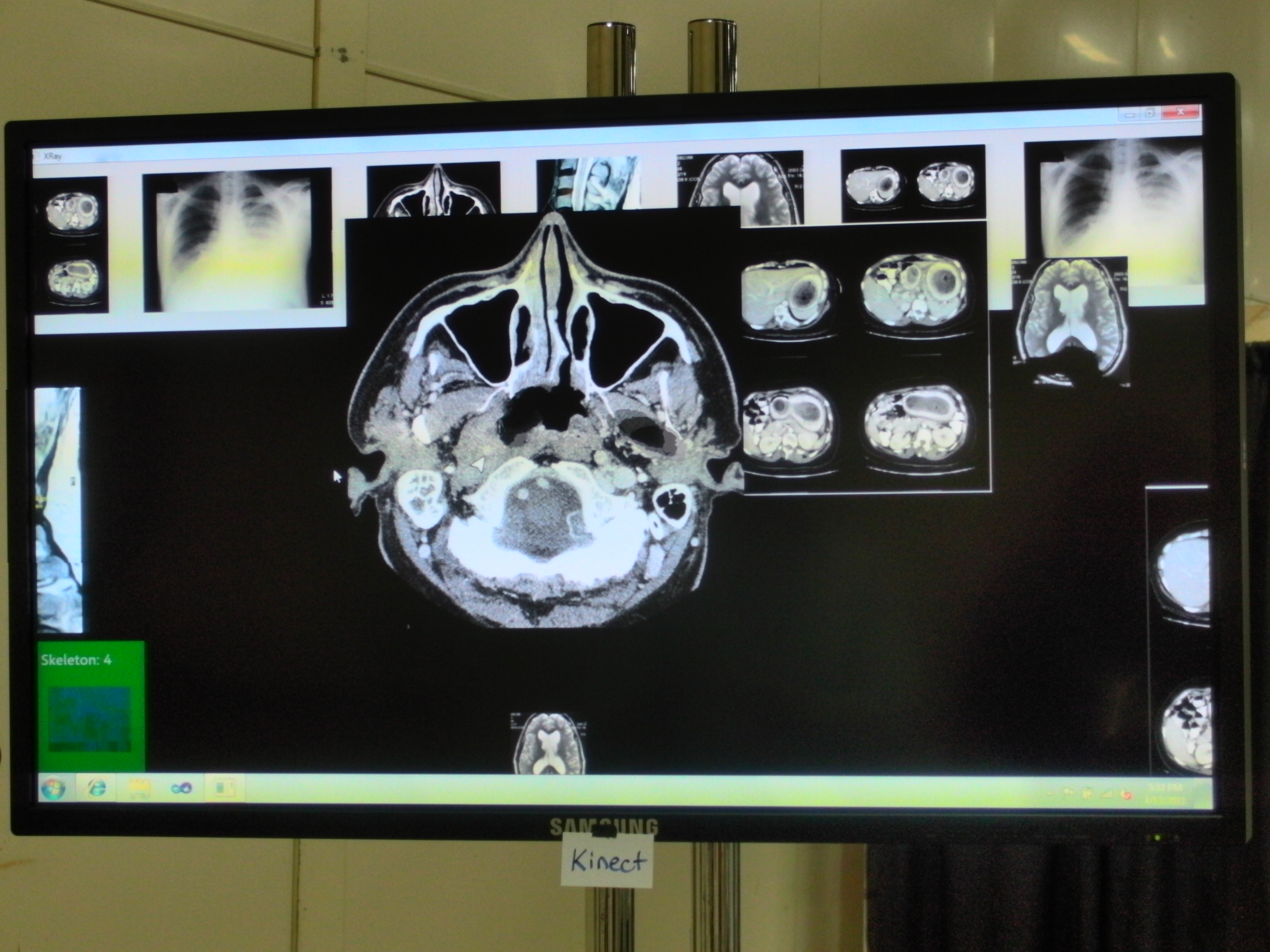
Microsoft has had plenty of successes in 2011, from record-breaking sales for Kinect and Xbox to the positive reaction to Nokia's Windows Phone.
Windows 7 and Office are still selling well, Bing has managed some moderate increases in market share, especially in the US, and the departures of big names like Ray Ozzie and Robbie Bach haven't caused any ripples.
For the second year in a row, everyone is taking Microsoft seriously.
But when you do well, you have to do even better next time and 2012 could be a challenging year. Microsoft has to ship - and sell - Windows 8 (especially on tablets), Windows Phone has to compete with whatever Apple and Google can come up with next, IE10 has to keep up with Chrome and whatever ridiculous number Firefox gets up to and Microsoft still needs to impress users with its cloud services.
Xbox is still going strong and Kinect could revitalise the market for PCs that aren't all about being as thin and light as a MacBook Air but can Microsoft pull it all together?
Windows Phone 8
There are plenty of Windows Phone 7.5 launches still to come next year, especially for the US market, building on Nokia's momentum with the Lumia 800 – and bringing Skype to the phone. Back at the MIX conference in April corporate vice president Joe Belfiore said Skype would be on the platform "this fall" along with the Mango update.
Unless it squeezes out before Christmas like Lync for Windows Phone, SkyDrive for Windows Phone and iOS, and OneNote for iPad, we're expecting to see Skype for Windows Phone at CES 2012.
Sign up for breaking news, reviews, opinion, top tech deals, and more.
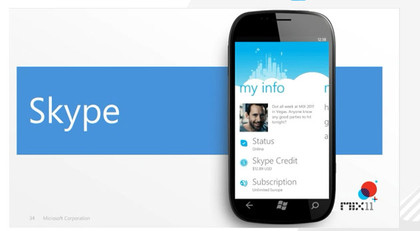
SKYPE EVENTUALLY:Promised for Windows Phone this autumn, maybe we'll see it at CES
The bigger news is the two new versions of Windows Phone expected next year; the Tango update that brings Windows Phone to cheaper handsets for developing countries (and anyone who won't switch away from their feature phone until smartphones are just as cheap) and the more interesting Apollo, which will have improvements in the grahics APIs, in Bluetooth and is when we'll probably see NFC.
Apollo, or Windows Phone 8, is what Microsoft mysteriously calls 'common core'; we think that means key programming frameworks from Windows 8 coming to the phone rather than the Windows 8 kernel and we certainly don't think it means throwing away all the Windows Phone 7 apps.
We should get more details on both at Mobile World Congress in February and we expect to see Tango in the spring and Apollo, with IE10 included, by next November.
Windows 8 – and IE 10
The beta of Windows 8 is due a little later than we'd expected; we expect Microsoft to tell us more about what's getting updated during CES but the beta (which will have new features in) will be available in late February, along with the beta of the Windows 8 Store.
That still leaves time for a release candidate and the final release for the autumn; Qualcomm CEO Paul Jacobs has suggested the launch will be soon after September (so we might see the second service pack for Windows 7 first).
That's when we'll see the final version of IE 10 as well for Windows 7 as well as Windows 8 (and yes, it will have spell checking on Windows 7); "We will release an IE 10 Beta and Release Candidate on Windows 7 prior to IE10's general availability," the IE team said on the official blog. That's a lot longer than the 12 months it took to create and release IE 9.
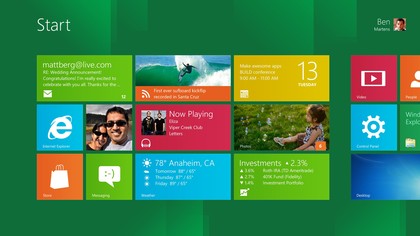
WINDOWS 8 BETA: Don't worry, the beta won't be this green
The autumn is also late for Windows tablets; by then they'll be competing with iPad 3 and BlackBerry 10 tabs and it's possible Google will have Android Jelly Bean out by the end of next year too. Microsoft obviouslydoesn'tthink it's too late to bring out a tablet but there's certainly a sense of urgency.
Windows Phone president Andy Lees has just taken a sideways step to handle what Steve Ballmer calls "a time-critical opportunity focused on driving maximum impact in 2012 with Windows Phone and Windows 8". We think that means making sure Windows 8 ARM tablets come out on time, work well and don't cause confusion for Windows Phone handsets – especially with Apollo's Windows 8 connection.
Microsoft isn't thinking about Windows 8 as an update that makes the way you use a PC today a little better; this is the operating system the Windows team hope you'll be using for a decade, the way you did Windows XP. Tablets matter but we're expecting to see Microsoft push some exciting new PC ideas too.
Kinect comes to PC
The rumours about the next Xbox are wilder than ever, including a faster connector for a new Kinect that could be sensitive enough to detect the expression on your face – or read your lips.
What we do know is that the PC version of Kinect (launching in "early 2012") is optimised for recognising things that are closer to the screen – like your hands rather than your whole body. That means you can gesture at the screen with your fingers.
So while the idea of TVs from Vizio and Sony with Kinect built in as a remote control is attractive, it's much more plausible that those rumours are actually about monitors for your PC that have Kinect in. The TV market is all about low prices and we don't see TV makers lining up to add a pricey sensor. But a Kinect screen could be the same price as a touch screen monitor – and the perfect match for Windows 8.
Think about it; waving at the Metro Start screen deals with all those complaints about fingerprints and gives you a natural interface that is perfectly suited to a screen you want further away than a tablet or laptop.
It also builds in a microphone for voice control – something Windows already has but hardly anyone uses; expect a Windows version of TellMe to compete with the rumoured Siri-controlled Apple TV.
But when you add Kinect to a screen, you get more than gestures; you get a PC that knows when you're sitting in front of it and which way you're looking. That could lock the screen when you walk away; it can also make video calls look more realistic by adjusting the image to the right perspective.
Steven Bathiche who runs the Applied Sciences group at Microsoft wants to use a Kinect-enabled screen with a Wedge lens (made by a company Microsoft has recently bought) to give you 3D images without glasses, by detecting where your eyes are and steering the beam of light towards them. That could be a 3D TV – or a 3D Xbox screen…
Silverlight 6
Even if we never see Silverlight 6, rumours of Silverlight's demise are almost certainly exaggerated. The newly announced support policy for Silverlightpromises updates for the browsers Silverlight 5 works with today (including Safari, Firefox and Chrome) and hints at support "as browsers evolve".
More importantly, the technology behind Silverlight will continue to be key for building Windows Phone apps, Silverlight is making its way to Xbox - and it's a key part of Windows 8 as one of the ways to build Metro-style apps using WinRT (which is an almost exact superset of current Silverlight features).
Using the XAML markup language, developing in C# and VB.NET on a subset of the .NET runtime, running in a secure sandbox and distributing apps using HTTP rather than an installer; the key principles of Silverlight will all still be there, whatever the technology is called.
The question is really whether there will be another browser plugin called Silverlight. In the long term, Microsoft is moving away from plugins; Andy Lees hinted at this last year when he explained to TechRadar that one reason the Windows Phone browser doesn't have Flash or Silverlight plugins is that "browsers are going to a different extensibility model" and it's even clearer in the plugin-free Metro version of IE10.
As HTML gets more capable, there will be fewer things you need a plugin for - but as long as those things include playing DRM video served by major broadcasters using Microsoft's streaming media server technology, Microsoft will be doing the engineering work to make that happen and delivering a plugin to build on that makes sense.
Office, Live and SkyDrive
A new version of Windows means a new version of Officeand while there are rumours that the beta of Office 2012 will be ready at the end of January it's more likely that we'll see it around the same time as the Windows 8 beta.
The leaked build from Microsoft Russia we saw in August had a cleaner look that matches the Metro-influenced look of desktop apps like the Windows 8 Task Manager, but there will also be Metro versions of key Office apps. The Moorea app for creating HTML pages on a tiled grid that's in the leaked build might be a hint at the type of Metro interface we'll see.
Certainly the Office Metro apps will have to stand out from the Mail, Calendar, People, and Messaging Windows Live Metro appsthat were previewed at the Build conference (they'd be the ideal apps to try out from the beta of the Windows Store and we expect to see them with the Windows 8 beta).
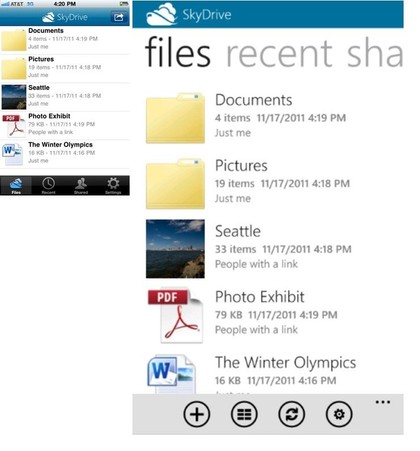
SKYDRIVE: It'll be everywhere - out for Windows Phone and iPhone first
Live is going to get more social network features, although it's more about being what the Microsoft job adverts call a "one-stop-shop for users to connect with friends and all their social network" than competing with Google+ and Facebook; this may be where odd social network projects from the research lab in Boston (like Spindex and socl.com) fit in.
And SkyDrive ("your cloud store for anywhere access to your data") is coming to Xbox according to this job advertwhich talks about IEB as well as Windows and Phone.
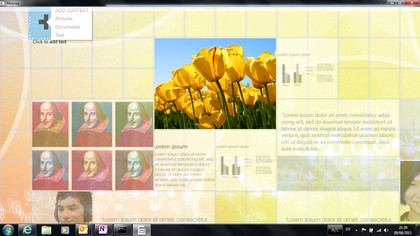
METRO OFFICE: Could Moorea be the new Office look?
Microsoft is betting on Windows 8 – Steve Ballmer famously called it the company's biggest bet – but it's backing that bet up with cloud services that will be available on more and more platforms. It's going to be another busy year.
--------------------------------------------------------------------------------------------------
Liked this? Then check out Hidden Windows tips tricks and shortcuts
Sign up for TechRadar's free Week in Tech newsletter
Get the top stories of the week, plus the most popular reviews delivered straight to your inbox. Sign up at http://www.techradar.com/register
Follow TechRadar on Twitter * Find us on Facebook * Add us on Google+
Mary (Twitter, Google+, website) started her career at Future Publishing, saw the AOL meltdown first hand the first time around when she ran the AOL UK computing channel, and she's been a freelance tech writer for over a decade. She's used every version of Windows and Office released, and every smartphone too, but she's still looking for the perfect tablet. Yes, she really does have USB earrings.